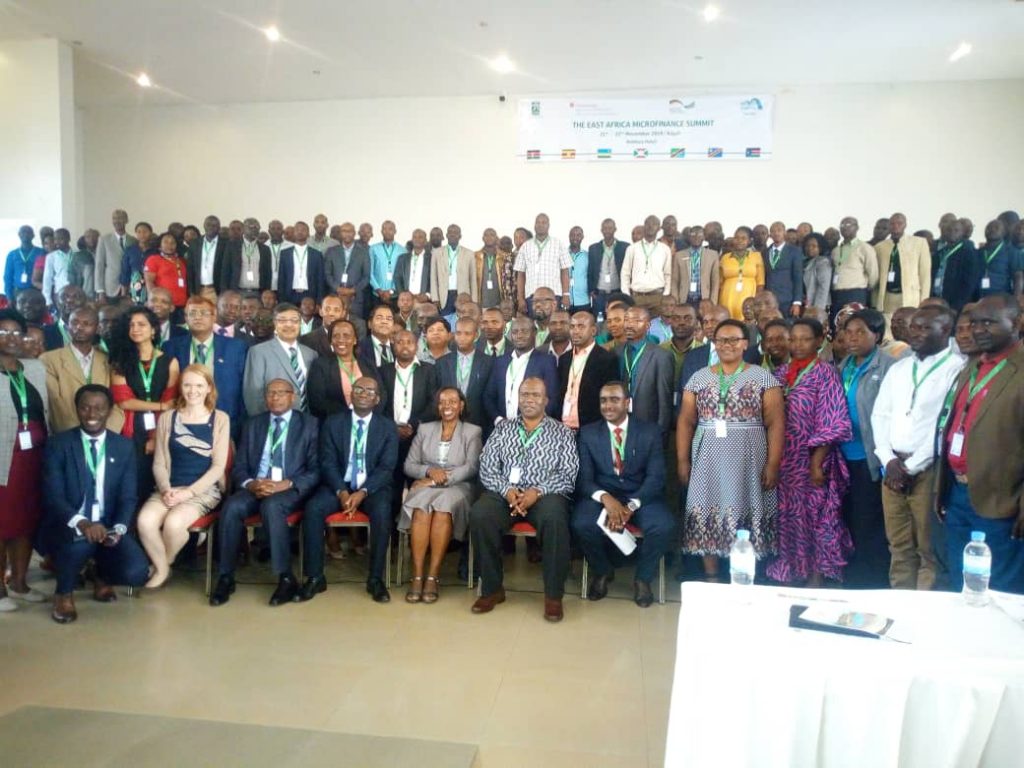EA Microfinance Summit opens in Kigali with a call to support microfinance subsector

By George Kalisa
African governments need to focus on the development of financial sector and ensure that women and youths access financial services in order to gain sustainable development.
Monique Nsanzabaganwa, the Vice Governor of the National Bank of Rwanda (BNR) made the call today while officiating the opening of the two-day East Africa Microfinance Summit 2019 in the Rwandan capital Kigali.
Nsanzabaganwa said that directing more efforts in the financial sector would improve lives of women and youths in Africa particularly the Eastern and Southern region where hunger and malnutrition are increasing due to serious challenges in Agriculture.
“Hunger and malnutrition are actually increasing in this region according to the new global report because of harsh weather conditions and climatic disasters,” said Nsanzabaganwa.
She called on participants to focus on how women and youths can access financial services in a bid to address financial exclusion.
The theme of the Summit is “Accelerating women and youth economic empowerment through financial inclusion”.
Jules Ndahayo said microfinance started with the focus of offering a diversity of financial services to especially the poor in an effort to boost financial inclusion and ensure sustainability of financial services.
“At the very beginning of Microfinance, the focus became offering a wide range of financial services to the poor and unbanked in general while also looking at the sustainability of financial service providers,” said Jules Ndahayo the Chairman of the Association of Microfinance Institutions in Rwanda (AMIR) while addressing over 200 participants mainly from East Africa.
Ndahayo said that sustainability of financial services providers and responsible finance were the bedrock of inclusion, adding that there are currently good indicators of financial inclusion in several countries with Rwanda boasting of 89 per cent according to the 2016 survey.
He called on the key players in the financial sector and policymakers to ensure that the good trends in the sector are not leaving behind the “less financially segments” – women and youth stressing that they represent a bigger percentage of the active population.
Also, the Summit is expected to come up with ways of creating a more enabling environment for the microfinance subsector through addressing challenges in the area of product development, regulation/risk management, digital infrastructure and consumer protection and education among others.
Several participants told this reporter that they were hopeful that the ongoing Summit will improve their capacity to manage microfinance institutions.
“Through information sharing we hope we shall gain more knowledge on financial literacy and management (…) said Marie Grace Mukandayisaba, the Vice President, SACCO ABIHUTA KINIGI in northern Rwanda.
Key partners at the summit include BNR, SBFIC, The SEEP Network, CARE Rwanda, Nguriza Nshore and representatives of some 457 microfinance companies operating in Rwanda.
Since AMIR was created in 2007 with 32 founding members its clientele has been growing and currently boasts of 3.7 million representing 54 per cent of the active population.
AMIR seeks to build a flourishing microfinance sector through advocacy, information sharing, research and development, performance monitoring, capacity building and responsible inclusive finance.

